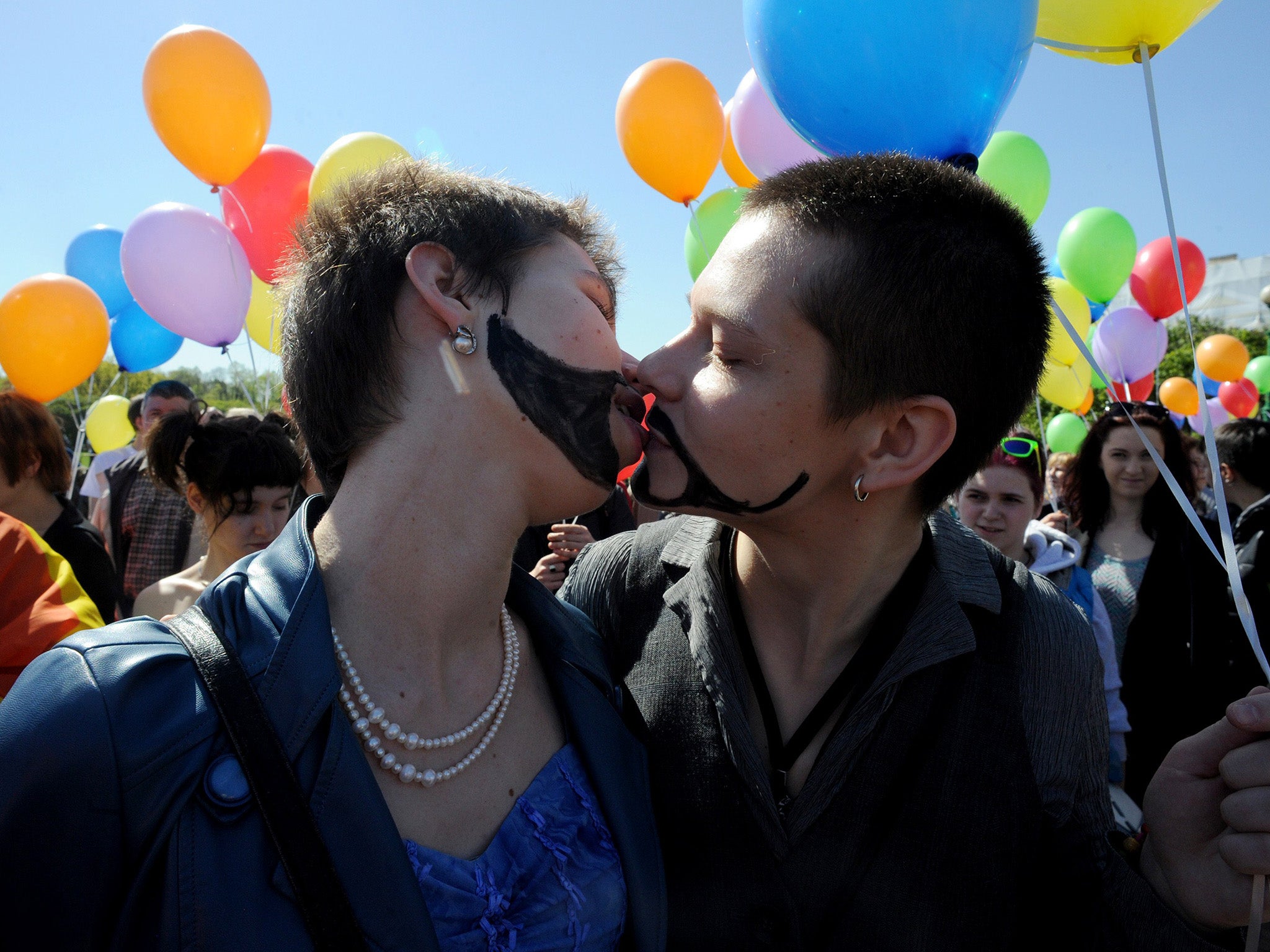Russia to debate banning all public displays of affection between gay people
If the legislation is approved gay couples will face a two-week jail term

Your support helps us to tell the story
From reproductive rights to climate change to Big Tech, The Independent is on the ground when the story is developing. Whether it's investigating the financials of Elon Musk's pro-Trump PAC or producing our latest documentary, 'The A Word', which shines a light on the American women fighting for reproductive rights, we know how important it is to parse out the facts from the messaging.
At such a critical moment in US history, we need reporters on the ground. Your donation allows us to keep sending journalists to speak to both sides of the story.
The Independent is trusted by Americans across the entire political spectrum. And unlike many other quality news outlets, we choose not to lock Americans out of our reporting and analysis with paywalls. We believe quality journalism should be available to everyone, paid for by those who can afford it.
Your support makes all the difference.The Russian parliament could be on the verge of banning all public displays affection between gay people in its latest assault on LGBT rights.
Legislation due to be voted on in the Duma this week could impose a ban on all public displays of affection between gay people in the country - meaning kissing or even holding hands could lead to a fine or a two-week prison sentence.
In 2013, Russia passed a controversial law which banned “gay propaganda” - meaning any public speeches, writing or demonstrations which equates gay relationships to straight ones because it may "influence children".
President Vladimir Putin has recently claimed he condemns homophobia but is increasingly targeting what he calls “non-traditional sexual relations” as a corrupting influence on Russia’s morality and society.
Speaking to Russian newspaper Izvestia in November, Ivan Nikitchuk - the Communist party MP who drafted the bill - said the 2013 anti-LGBT law was “insufficiently effective”.
He said “homosexuality is a huge threat to every normal person, which can affect children or grandchildren, and thus interrupt the race”.
But he later told a Russian radio station that the new law would not affect women because they believed “women are more reasonable”.

The wording of the proposed law is vague and there are no guarantees the Duma will pass it, the Washington Post reports.
When the bill - which is currently at the first reading stage - was put before the Duma’s legal committee, they were unenthusiastic about it saying it would be potentially too difficult to enforce.
The Kremlin has not commented on the bill so it is unclear whether it is backed the government.
Although being gay is not technically illegal in Russia, laws passed in recent years have made it harder and harder for the LGBT community to live openly.
Human Rights Watch says LGBT activists in the country have reported anti-vigilante groups are able to attack them “with impunity” and the 2013 law has fuelled the violence against them.
It said: “LGBT people described being beaten, abducted, humiliated, and called 'paedophiles' or 'perverts', in some cases by homophobic vigilante groups and in others by strangers on the subway, on the street, at nightclubs, at cafes, and in one case, at a job interview”.
Join our commenting forum
Join thought-provoking conversations, follow other Independent readers and see their replies
Comments